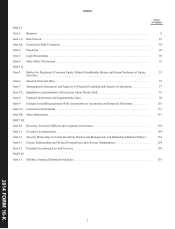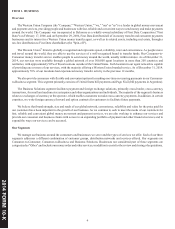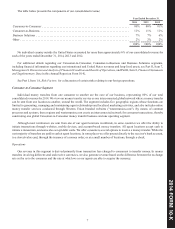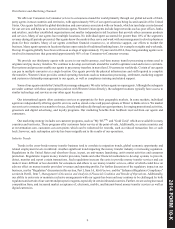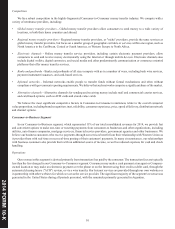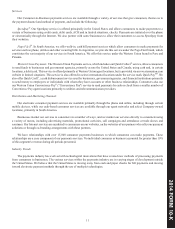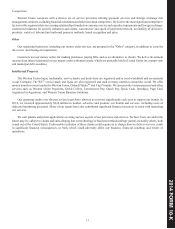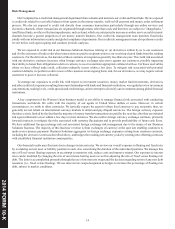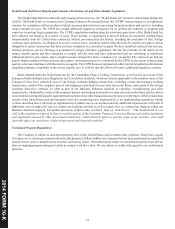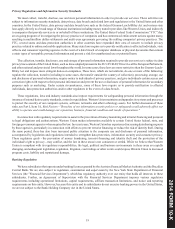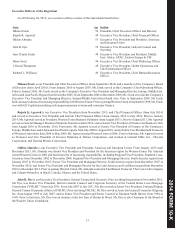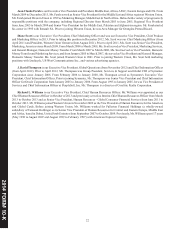Western Union 2014 Annual Report Download - page 150
Download and view the complete annual report
Please find page 150 of the 2014 Western Union annual report below. You can navigate through the pages in the report by either clicking on the pages listed below, or by using the keyword search tool below to find specific information within the annual report.
2014 FORM 10-K
12
Competition
Western Union competes with a diverse set of service providers offering both cash and electronic-based payment solutions.
Competition in electronic payment services includes financial institutions (which may offer consumer bill payment in their own
name or may "host" payment services operated under the names of their clients) and other non-bank competitors. Competition for
electronic payments also includes businesses offering their own or third-party services to their own customers and third-party
providers of all sizes offering services directly to consumers. Competitors for cash payments include businesses that allow
consumers to pay a bill at one of their locations, or at the location of a partner business, as well as mail and courier services. The
ongoing trend away from cash-based bill payments in the United States and competitive pressures, which result in lower cash-
based bill payment volumes and a shift to lower revenue per transaction services, continues to impact this business.
We believe the most significant competitive factors in this segment relate to customer service, trust and reliability, convenience,
speed, price, variety of payment methods, biller relationships and service offerings, innovation, technology, and brand recognition.
Business Solutions Segment
In our Business Solutions segment, which represented 7% of our total consolidated revenues for 2014, we facilitate payment
and foreign exchange solutions, primarily cross-border, cross-currency transactions, for small and medium size enterprises and
other organizations and individuals.
Operations
The substantial majority of our revenue in this segment is derived from foreign exchange revenues, which are based on the
difference between the exchange rate set by us to the customer and the rate at which we are able to acquire the currency. Customers
may make an electronic or wire transfer or remit a check in order to initiate a transaction. Our Internet services are provided
through our own website and also in partnership with others. The significant majority of the segment's revenue was generated
outside the United States during all periods presented.
Services
Business Solutions payment transactions are conducted through various channels including the phone and Internet. Payments
are made predominately through electronic transfers, but in some situations, checks are remitted. The majority of Business Solutions'
business relates to exchanges of currency at the spot rate, which enables customers to make cross-currency payments. In addition,
in certain countries, we write foreign currency forward and option contracts for customers to facilitate future payments.
Distribution and Marketing Channels
Our business solutions services are primarily offered over the phone, through partner channels, and via the Internet. Our
Internet services are marketed through co-branding arrangements with our website partners as well as on our own websites.
We have relationships with more than 100,000 customers with respect to our payment solutions. These relationships are a
core component of our business payments services. No individual customer accounted for greater than 10% of this segment's
revenue.
Industry Trends
The business-to-business payments industry has evolved with technological innovations that have created new methods of
processing payments from businesses to other businesses. The various products and services within the business-to-business
payments industry are in varying stages of development. We believe that the cross-border payments industry will expand in the
future due to the expanding global focus of many businesses. Increased regulation and compliance requirements are trends also
impacting the business-to-business payments industry, which will likely result in increased costs in this segment.


